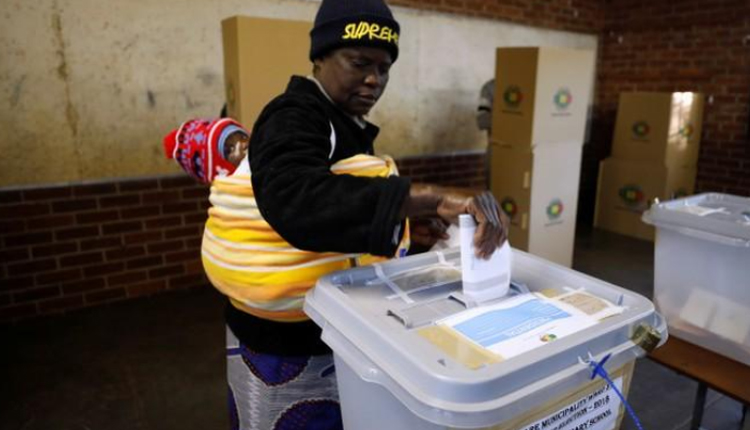Zimbabwe’s president, opponent both confident of win as vote closed
Zimbabwe’s President Emmerson Mnangagwa and his main opponent, Nelson Chamisa, both said on Tuesday they were confident of winning the election the previous day which observers deemed too early to call.
Mnangagwa said he was receiving “extremely positive” information on the vote. Chamisa said earlier the opposition Movement for Democratic Change had done “exceedingly well” in the vote.
The 75-year-old Mnangagwa and Chamisa, 40, were the main contenders in Monday’s election, the first since Robert Mugabe was removed in a bloodless coup in November.
Western diplomats and local observer groups said the race, which saw a turnout of 75 percent, was too close to call.
The Zimbabwe Electoral Commission will announce official results within five days of the election although the outcome should be known well before then.
The winner faces the task of putting Zimbabwe back on track after 37 years under Mugabe which were tainted by corruption, mismanagement and diplomatic isolation that caused a crisis in a country that once had one of Africa’s most promising economies.
“The information from our reprentatives on the ground is extremely positive!” Mnangagwa said on his official Twitter feed.
Chamisa had earlier said he was poised for victory, writing on Twitter: “Awaiting ZEC to perform their constitutional duty to officially announce the people’s election results and we are ready to form the next government.”
A Chamisa victory is unlikely to sit well with military generals who plotted Mugabe’s ouster last November, and there could be a pushback.
Some of the generals who orchestrated the coup are now in government, including Vice President Constantino Chiwenga.
Many Zimbabweans worry that should Mnangagwa lose some in the ruling party may not accept the result, given the huge risk they took in removing Mugabe.
Sponsored Stories
Mnangagwa and ZANU-PF have said they will accept the result.
“THIS IS AFRICA”
“If this guy loses there is no way they will handover power,” said Gift Machekera, pointing at a huge banner of Mnangagwa hanging on a building in Harare.
“Those who have the guns have the power. This is Africa.”
Mnangagwa was viewed as the frontrunner, although the latest opinion polls showed a tight race. There will be a runoff on Sept. 8 if no candidate wins more than half the votes.
Several civil society groups are collating results from 10,985 polling posts in parallel with ZEC but are not allowed to release results before the ZEC. A source at one group said it was too early to call a winner but it was looking “very close”.
In the capital Harare, an MDC stronghold, results posted outside some polling stations seen by Reuters showed Chamisa winning by wide margins, but Mnangagwa was expected to claw back ground in the ruling ZANU-PF’s rural heartland.
Urban results tend to emerge quicker than those from rural outposts, where communication is poor.
In some rural constituencies in the east and south of the country, counting of votes was still ongoing but was expected to end early on Tuesday, some parliamentary candidates said.
A credible vote is essential if Zimbabwe is to exit painful sanctions and secure the donor funding and investment needed to stem chronic cash shortages.
The run-up to Monday’s vote was largely peaceful compared to past elections under Mugabe, where the ruling party and war veterans were accused of violence against opponents.
Dozens of people were killed ahead of a runoff in 2008 between Mugabe and MDC-founder Morgan Tsvangirai, who died of cancer in February.
Mugabe emerged on the eve of the election to announce he would vote for the opposition, surprising Mnangagwa who accused him of striking a deal with Chamisa.
Source: Reuters


